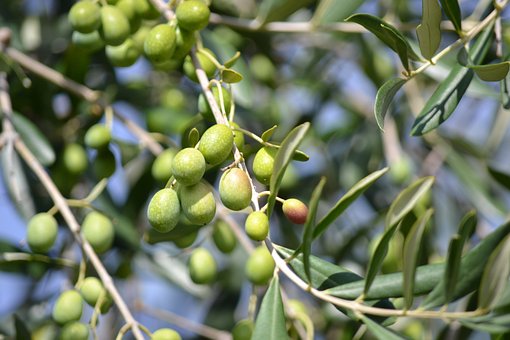Olives are a type of fruit that grow on olive trees. They are a staple in many cuisines around the world and are often used to add flavor and nutrition to dishes. But what is the nutritional value of olives and are they healthy for you?
First, let’s look at the basic nutritional content of olives. A 100 gram serving of olives contains approximately:
73 calories
6.7 grams of fat
2.3 grams of protein
4 grams of carbohydrates
2.5 grams of fiber
0.1 gram of sugar
Olives are a good source of several important nutrients. They are high in monounsaturated fats, which have been shown to help reduce the risk of heart disease and improve cholesterol levels. Olives also contain a variety of antioxidants, including vitamin E, polyphenols, and flavonoids. These compounds have been shown to have anti-inflammatory properties and may help protect against certain diseases.
In addition to these nutrients, olives also contain a number of other beneficial compounds. For example, they are a good source of iron, which is important for carrying oxygen to the cells in the body. Olives also contain small amounts of calcium, which is important for strong bones and teeth.
So, are olives healthy for you? The answer is generally yes. As with any food, it is important to consume olives in moderation as part of a balanced diet. It’s also worth noting that the health benefits of olives may vary depending on how they are prepared and consumed. For example, olives that are packed in oil may contain more fat and calories than those that are not.
There are several different types of olives, each with its own unique flavor and nutritional profile. Some common types of olives include:
Black olives: These olives are usually cured in a mixture of water, salt, and lye, which gives them their dark color and distinctive flavor. Black olives are high in monounsaturated fats and contain a variety of antioxidants.
Green olives: These olives are usually cured in a mixture of water and salt and have a distinctively tangy flavor. Green olives are also high in monounsaturated fats and contain a variety of antioxidants.
Kalamata olives: These olives are native to Greece and have a distinctive dark purple color. They are usually cured in a mixture of water, salt, and vinegar and have a rich, fruity flavor. Kalamata olives are high in monounsaturated fats and contain a variety of antioxidants.
Pitted olives: These olives have had the pit removed, making them easier to eat. Pitted olives are available in a variety of flavors and are often used as a garnish or added to dishes for flavor.
There are many ways to incorporate olives into your diet. They can be eaten on their own as a snack, added to salads, used as a topping for pizzas and sandwiches, or included in a variety of cooked dishes. Olives can also be used to make olive oil, which is a popular cooking oil in many parts of the world.
Overall, olives are a nutritious and flavorful addition to any diet. They are high in monounsaturated fats and contain a variety of antioxidants and other beneficial compounds. While it is important to consume olives in moderation as part of a balanced diet, they can be a healthy choice for most people.

 Home
Home Health
Health Diet & Nutrition
Diet & Nutrition Living Well
Living Well More
More












